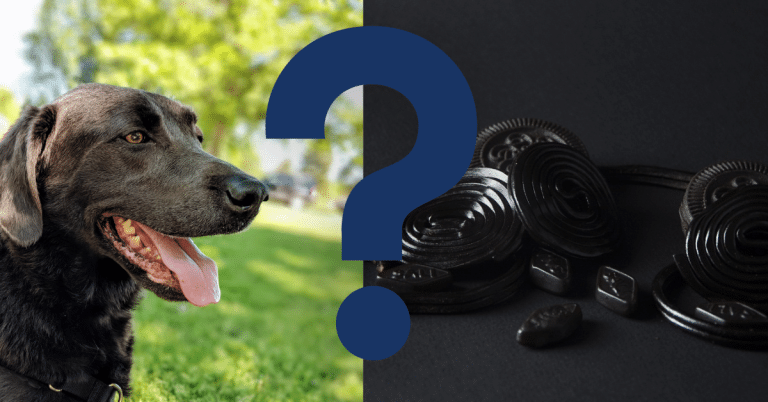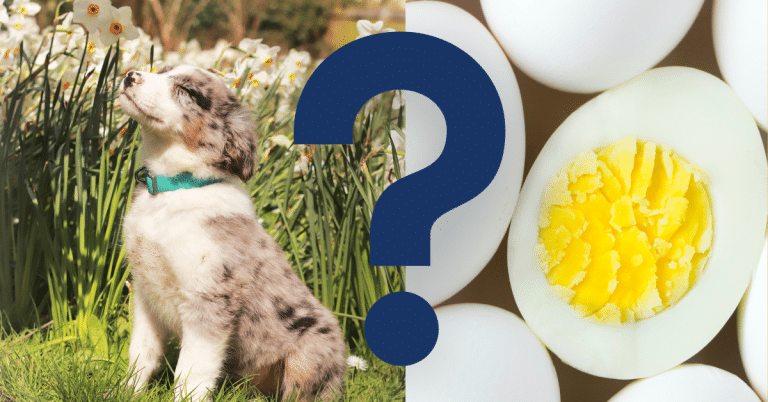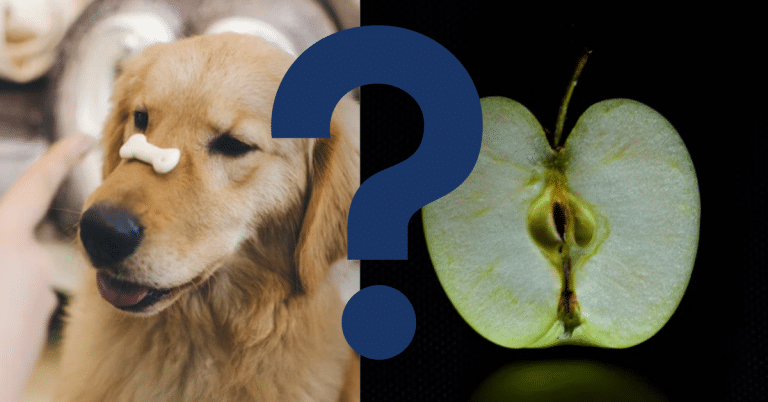Can Dogs Eat Peaches? A Vet’s Opinion

A peach is a fuzzy fruit that is high in fiber, and rich in vitamins A and C, potassium, and antioxidants, but can you feed peaches to your dog?
Yes, dogs can safely eat peaches as long as the pit and skin are removed. The pit of a peach contains cyanide, which is toxic to dogs, so it’s important to only feed them the flesh of the fruit. Additionally, it’s important to feed peaches in moderation as they contain natural sugars that can lead to weight gain and other health problems. Finally, make sure to introduce any new food slowly and watch for any signs of digestive upset or allergic reaction.
Let’s dive in and find out more!
Benefits Of Peaches For Dogs
Peaches provide a range of health benefits for dogs when fed in moderation. Here are some of the benefits of peaches for dogs:
- Rich in vitamins and minerals: Peaches are a good source of vitamins A and C, as well as potassium and fiber, which can help support your dog’s overall health and well-being.
- Antioxidant properties: Peaches contain antioxidants such as beta-carotene and flavonoids that can help protect cells from damage caused by free radicals, potentially reducing the risk of chronic diseases.
- Hydration: Peaches are a juicy fruit that can help keep your dog hydrated, especially during hot weather or after exercise.
- Digestive health: The fiber content in peaches can help regulate bowel movements and improve digestive health.
- Immune system support: Vitamin C is essential for a healthy immune system, and peaches are a good source of this important vitamin.
- Anti-inflammatory properties: Peaches contain polyphenols that have anti-inflammatory properties, which may help reduce inflammation in the body and improve overall health.
It’s important to note that peaches should be fed in moderation and the pit and skin should be removed to prevent any potential harm.

How To Safely Give Peaches To Dogs
If you want to give peaches to your dog, it’s important to follow these safety guidelines:
- Remove the pit: Peach pits contain cyanide, which can be toxic to dogs if consumed in large amounts. Make sure to remove the pit before giving your dog any peach.
- Wash the fruit: Just like with any fruit or vegetable, it’s important to wash peaches thoroughly to remove any pesticides or dirt that may be on the skin.
- Cut the peach into small pieces: Large pieces of peach can be a choking hazard for dogs, so it’s best to cut the fruit into small pieces that your dog can easily chew and swallow.
- Limit the amount: Although peaches are safe for dogs to eat in moderation, they should not be a regular part of their diet. Too much fruit can cause an upset stomach, diarrhea, or other digestive issues.
If your dog has never had peaches before, it’s best to introduce them slowly and in small amounts to make sure they don’t have any adverse reactions. Overall, peaches can be a healthy and tasty treat for dogs when given in moderation and with proper precautions.
Will Peaches Make A Dog Sick?
Peaches contain pits, which can pose a choking hazard to dogs, and the pit itself contains cyanide, a toxic substance that can be harmful to dogs if ingested in large quantities. Even the flesh of the peach can be a problem for some dogs, as it can cause gastrointestinal upset such as vomiting, diarrhea, and stomach pain.
If you do decide to give your dog peaches, it is important to remove the pit and any surrounding flesh. You should also start with a small amount and monitor your dog for any signs of gastrointestinal distress. It’s also important to note that while peaches are safe for most dogs, some dogs may have an allergy or sensitivity to them. If you notice any signs of an allergic reaction, such as itching, swelling, or difficulty breathing, stop giving your dog peaches and consult with your veterinarian.
Can Dogs Eat Peach Variations?
Dogs can eat certain peach variations, but it’s important to note that they should only consume the flesh of the peach in moderation. Peach pits and stems contain cyanide, which is highly toxic to dogs, so it’s essential to remove them entirely before offering your dog any peach flesh. It’s best to offer your dog small amounts of fresh, ripe, and organic peaches, and avoid any canned or processed peach products that may contain added sugars or preservatives.

Vet’s Summary
Peaches can be a nutritious treat for dogs if given in moderation and prepared properly. They are a good source of vitamins A and C, fiber, and potassium. However, it is important to note that the pit of a peach can be a choking hazard and should be removed before feeding it to your dog. Additionally, the flesh of the peach should be thoroughly washed to remove any pesticides or residues that could be harmful to your dog’s health. It’s also important to note that not all dogs may tolerate peaches well and may experience digestive issues such as vomiting or diarrhea. As with any new food, it’s best to introduce peaches slowly in small amounts and monitor your dog’s reaction.
Probiotics can help dogs suffering from digestive issues, such as diarrhea or constipation, as well as those with allergies, skin conditions, and even anxiety.
Dogs can benefit from probiotics in many ways, including improved digestion, better absorption of nutrients, and enhanced immune function. They can also help to prevent the growth of harmful bacteria in the gut, reducing the risk of infections and diseases. Probiotics can be particularly beneficial for dogs that have undergone antibiotic treatments, which can kill off beneficial bacteria in the gut along with harmful ones. Overall, probiotics can be a valuable addition to a dog’s diet and can help to improve their overall health and well-being. However, it is important to consult with a veterinarian before introducing probiotics to your dog’s diet, as some strains may not be suitable for all dogs, and dosage and administration may vary depending on the individual dog’s needs.
Videos To Watch
If you are wondering what related foods are good to give your dog, watch this:
And if you want to know what a dog can NOT eat, watch this:






